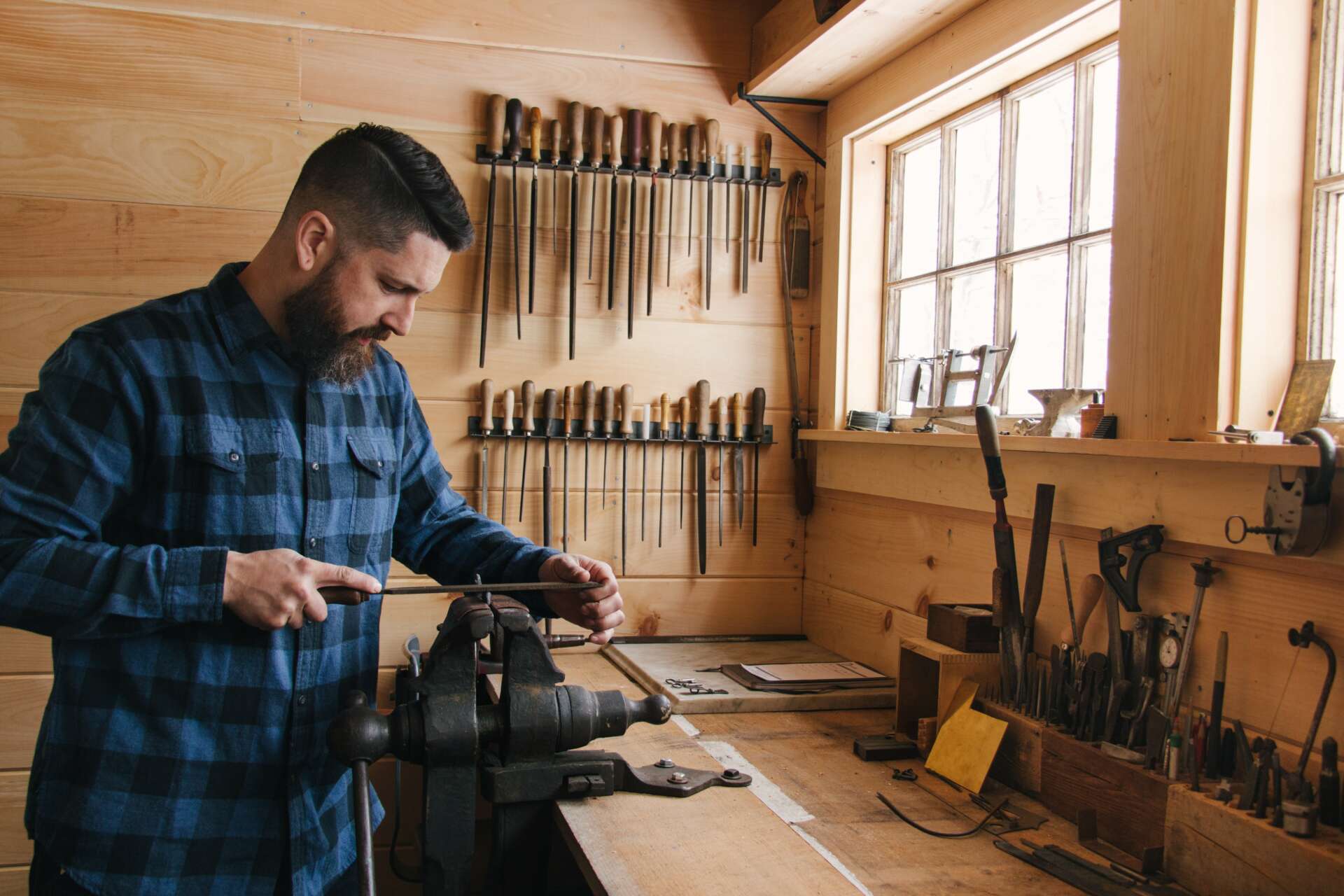Alright – so today we’ve got the honor of introducing you to Thomas Boucher. We think you’ll enjoy our conversation, we’ve shared it below.
Thomas, looking forward to hearing all of your stories today. How did you learn to do what you do? Knowing what you know now, what could you have done to speed up your learning process? What skills do you think were most essential? What obstacles stood in the way of learning more?
I didn’t start out by making locks. I started by forging the things that interested me. Mostly tools to help me get started. I think early on I was curious about making a lock, but I knew nothing about them. After forging for a few years, I learned about a smith, named Seth Gould, who was making some really neat padlocks and posting progress pictures on instagram. I could clearly see how he was making them. That started the gears turning in my head. Around the same time I bought a DVD featuring Peter Ross making a crab lock. I made the lock from the DVD and I made a similar padlock to one Seth had made. I even finished the padlock in Seth’s shop. Not long after, I was awarded a Traditional Artist Apprenticeship grant along with Kevin Moreau, of Plumb Farm Workshops, allowing me to study with him. The time I spent with Kevin was a pivotal moment in my development. My work and my personal confidence in my work became much better.
Once I started making hand made locks I made them my primary focus. It’s not just about the end product though. It’s about the process. I do a lot of research into their construction and the tools used to make them. Any object can be made in multiple ways, but trying to make a lock or key in the manner in which it was made 300+ years ago is a specific task. You have to use the tools of the day and often that means relearning about forgotten tools and processes. There really aren’t any good avenues for these discoveries, so learning it has basically been a deep dive in long self guided explorations and seeking out other individuals that may have some nuggets of information.
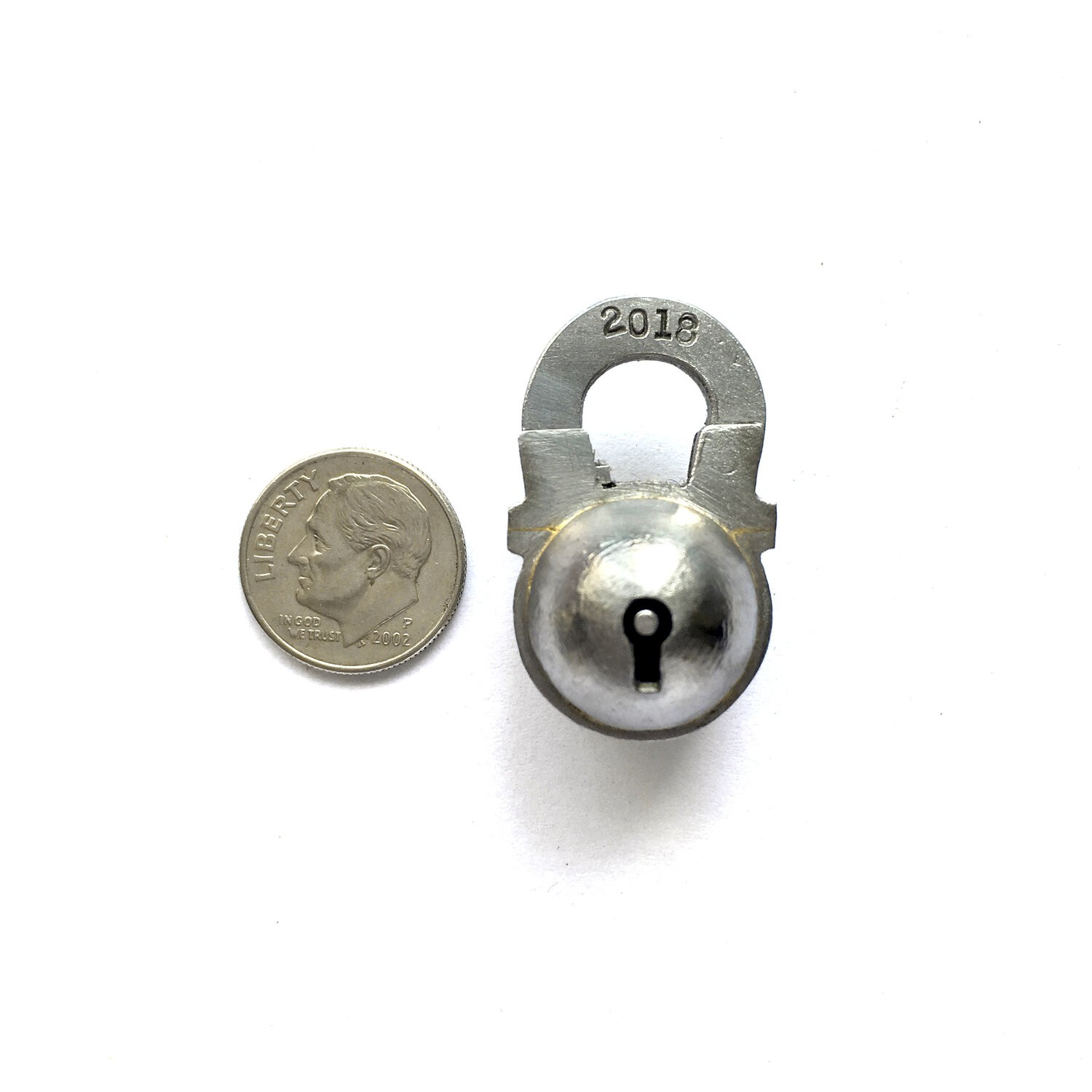
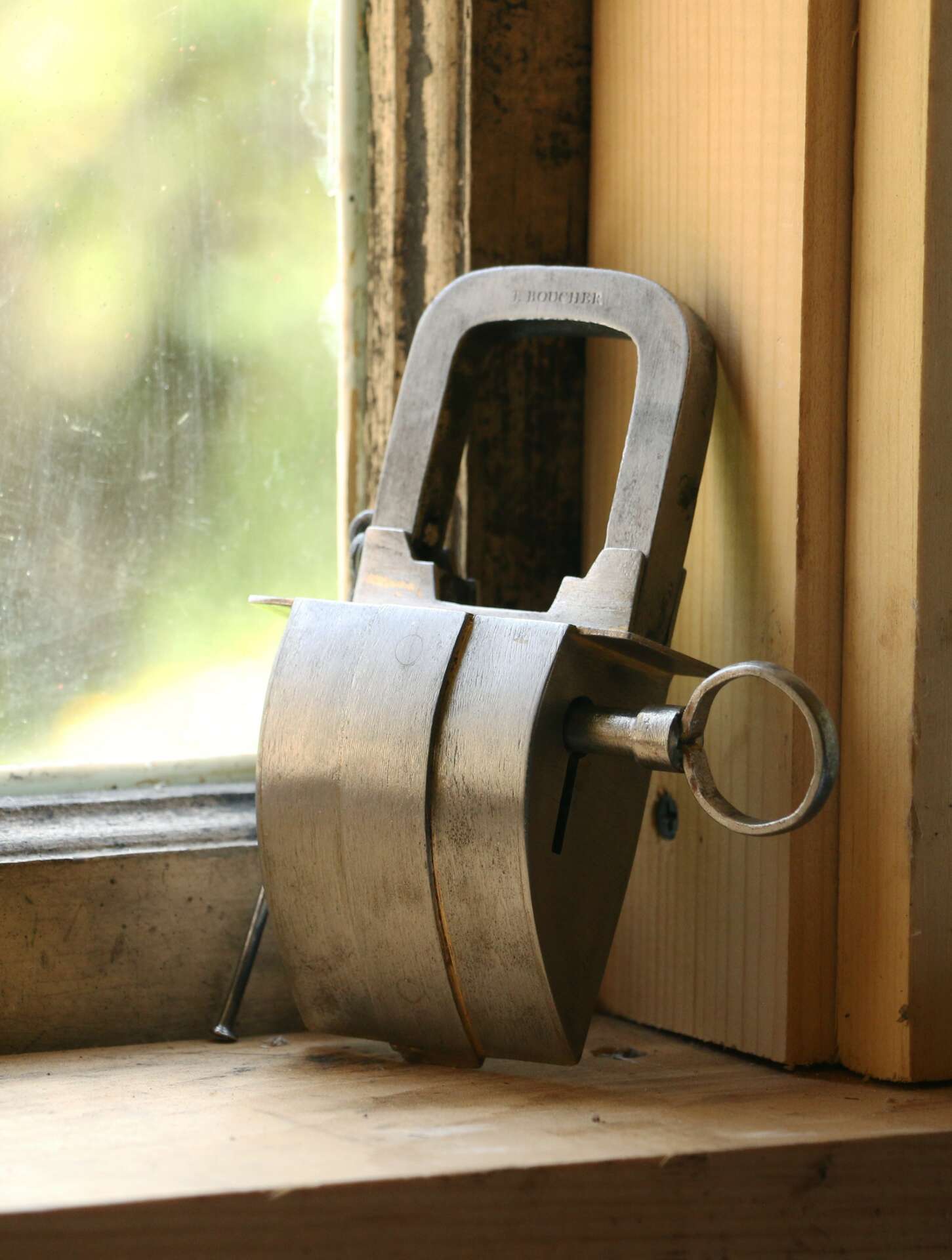
As always, we appreciate you sharing your insights and we’ve got a few more questions for you, but before we get to all of that can you take a minute to introduce yourself and give our readers some of your back background and context?
I grew up in my father’s shop, in New Hampshire. He started his business as a blacksmith, but switched over to welding when I was pretty young. I have memories of him forging and it was something I wanted to do, but as I got older I was more interested in making money working for him than playing around on the anvil. Much later in 2012, I was engaged and wanted my father to make bottle openers for my groomsmen. I ended up deciding that I should make them instead. Once I started forging I was hooked and I haven’t stopped.
I wish I could say I do this full time, but it’s not really possible. The reality is there isn’t a lot of demand or need for handmade locks and keys. Occasionally, some one will need a key made for an old lock or to have something repaired. There are collectors that will buy newly made locks, just like anyone else buying a piece of art from any other artist. But the craft is no longer needed like it was hundreds of years ago.
I post a lot of my work on instagram, both in progress and finished pieces. I was starting to build a reputation for being known as someone that makes locks, especially during my time with Kevin. I found that I was often getting asked by other blacksmiths what books were there for learning to make locks. There really aren’t many and so I didn’t have a good answer. I have a background in graphic design and more specifically I work for a small publishing company as a freelance art director and book designer. I knew that there was a market for this information so I decided to write a book titled Basic Handmade Padlock.
The success of my first book has led me to teaching classes at craft schools, furthering my reach with this information. The next one will be October 2023 at the New England School of Metalwork. In 2021, I began working on a follow-up book, which will hopefully be out next year, that takes the difficultly a step further building on the skills of the first book.
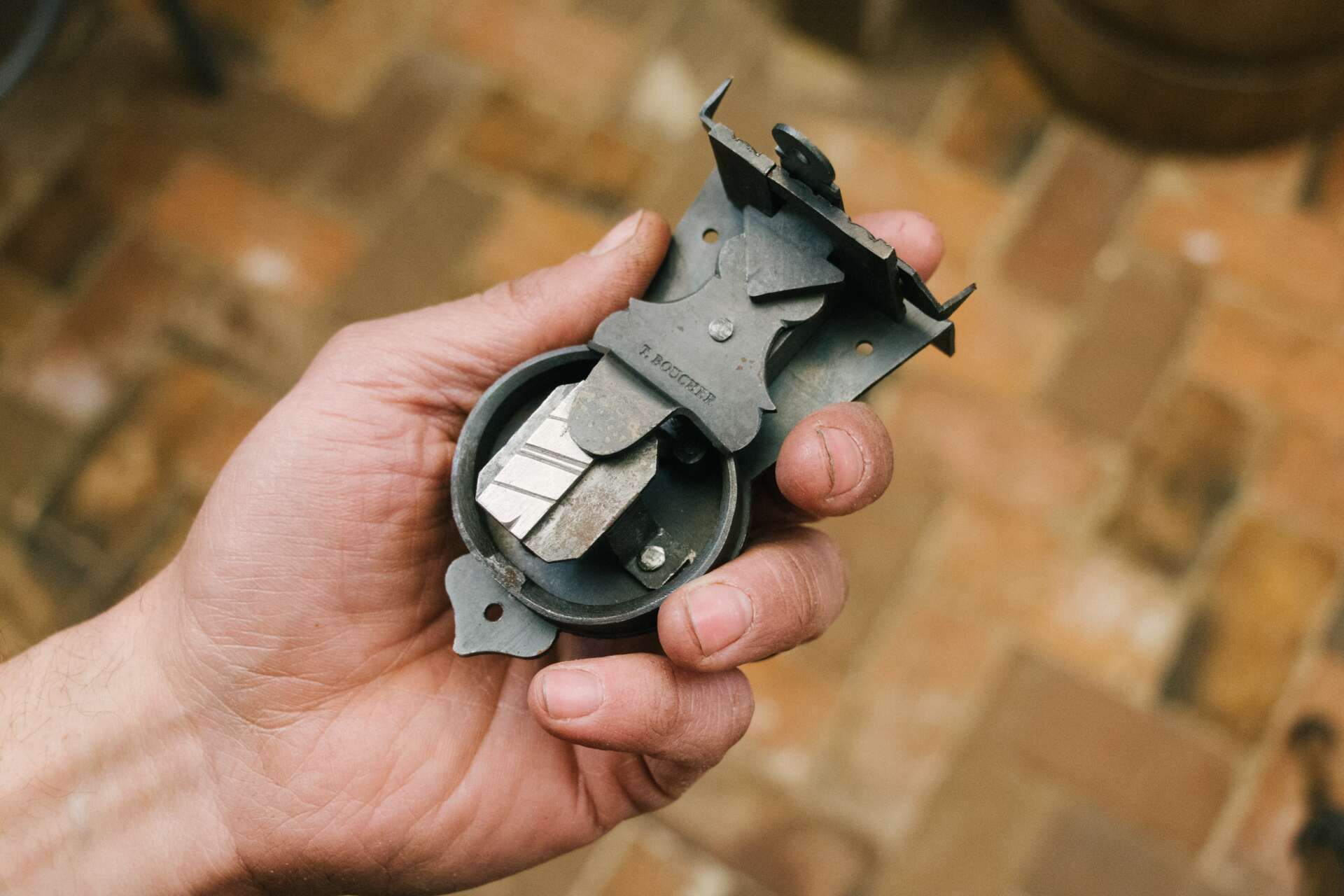
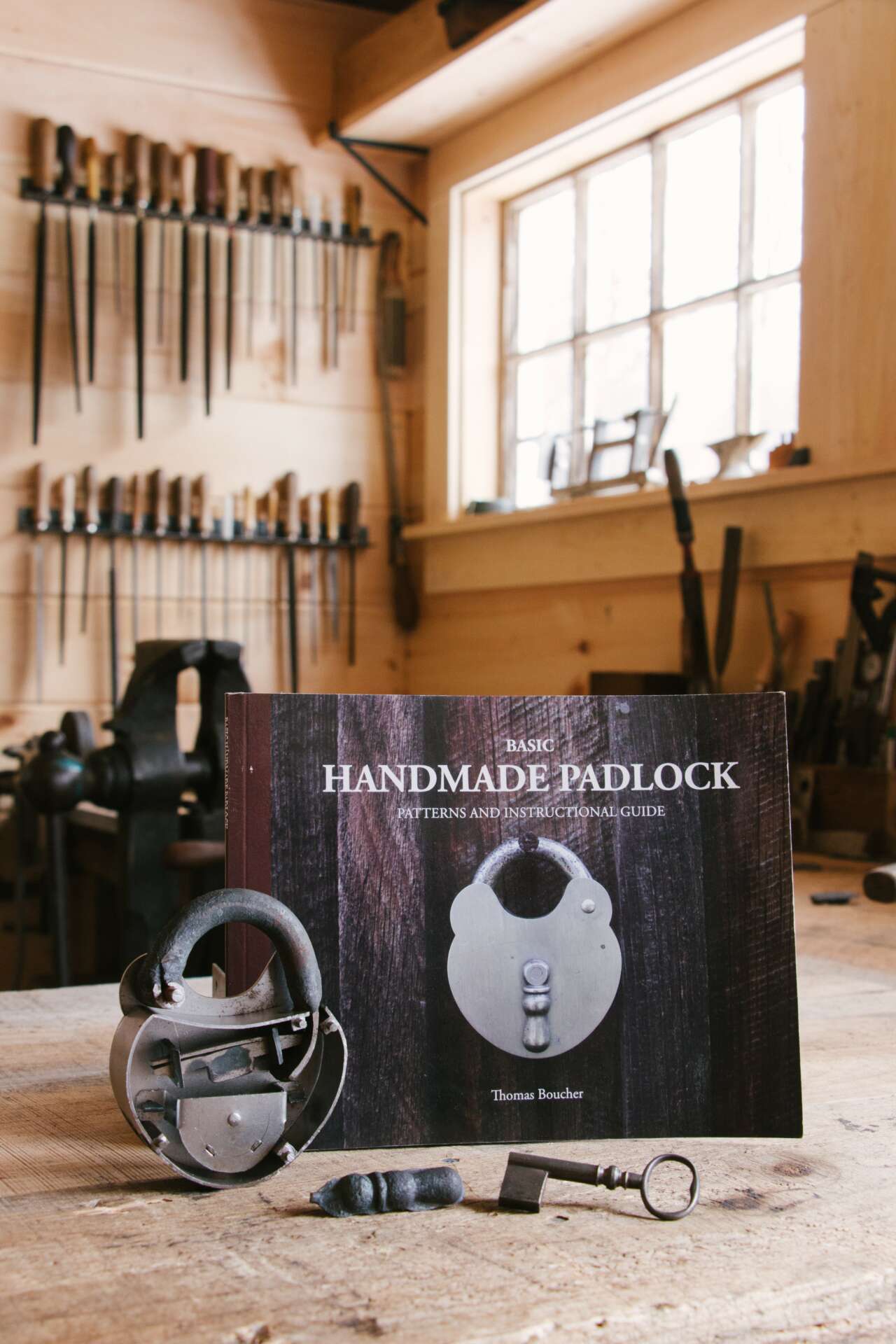
Is there mission driving your creative journey?
Typically, I find a lock that I am interested in and I research its construction and any new tools or processes that I may need to make it. Lately, the projects I have been engaging in are based around the books that I am researching and writing. My mission statement is: ‘Rediscovering and exploring techniques to make handmade locks and keys and sharing the knowledge gained along the way.’ I am trying to write the books that I wish I was able to learn this information from, but since I am the one compiling all of this information I guess I am the person to write them. There are some great old historical books (not in English). Although they are good resources for information, I find that they don’t paint the complete picture. I am filling in the pieces, which I think are missing, and also outlining how to make specific locks with the construction techniques I find present in originals. It’s also helpful for those of us that only know English to have this information easily digestible.
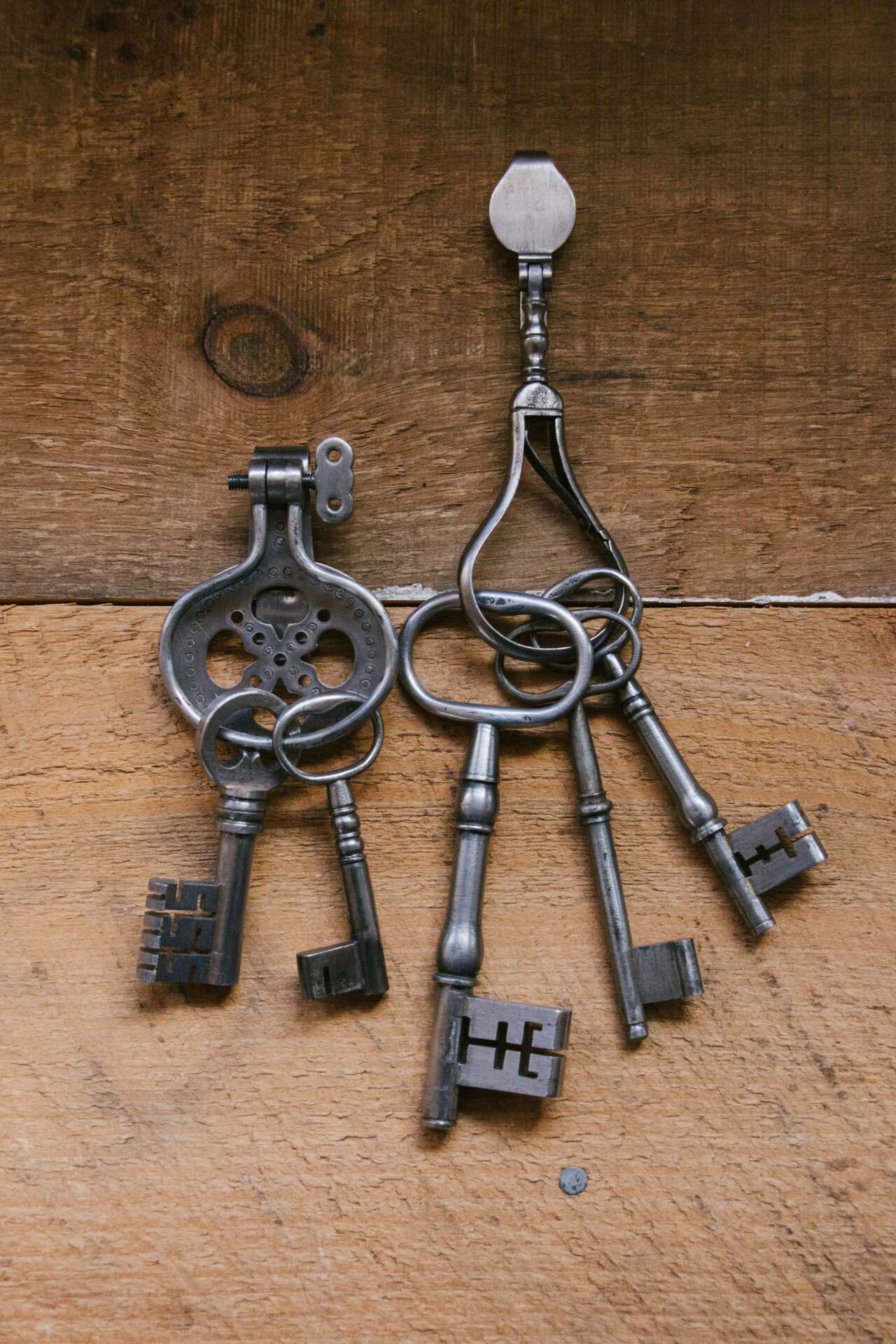
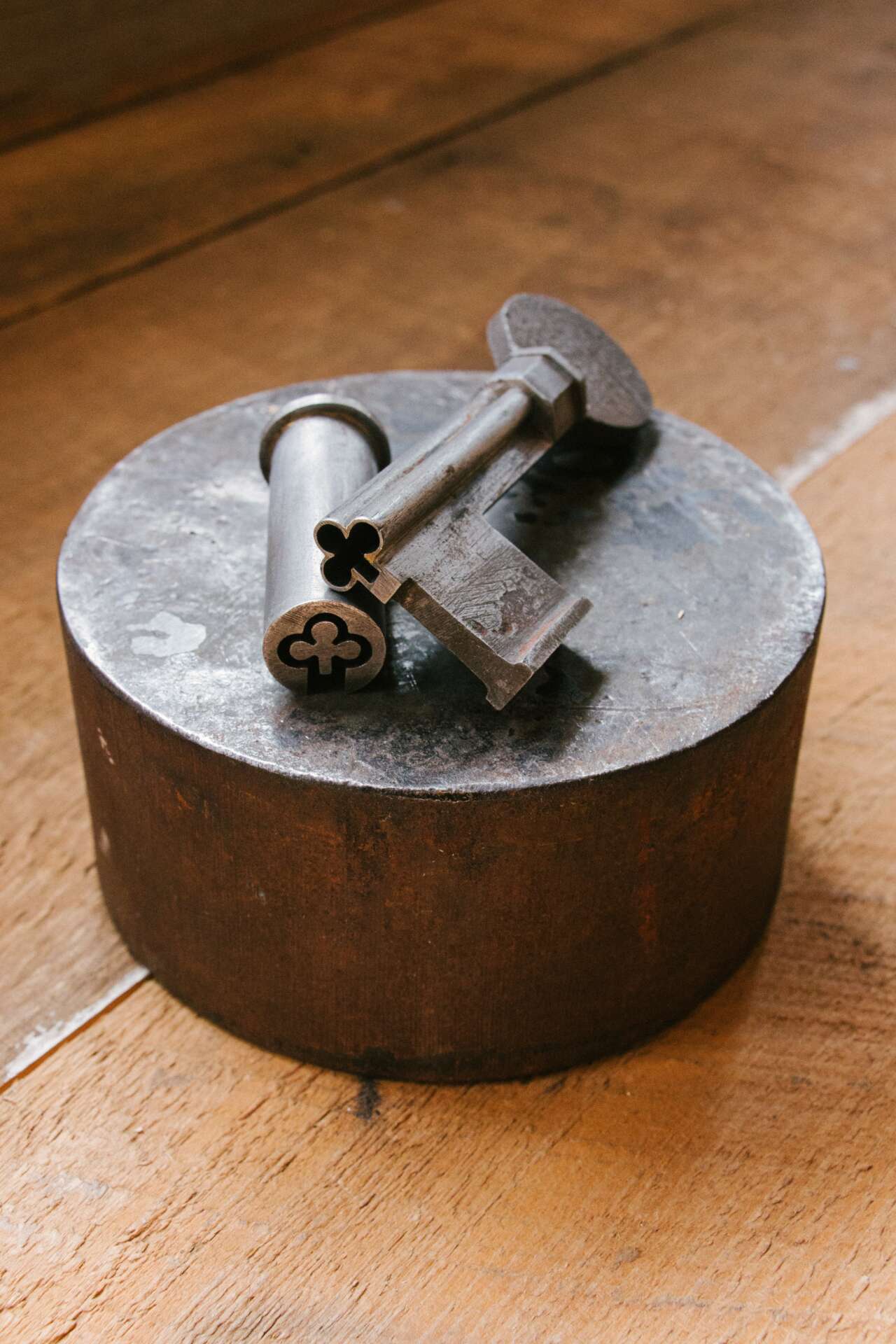
We’d love to hear the story of how you built up your social media audience?
I began my social media by just posting everything and anything I was working on. I guess I had the idea in mind that I wanted my following to grow, but it wasn’t really for business purposes. There was no real thought behind doing it. That is largely the same approach I take today, only my work is more focused in one direction. I have tried to make sure that I have somewhat regular posts, but that can become challenging. The more often I post the more engagement I get, but I also find that a quality post is better than posting just to post. Lately I’ve shifted more to trying to post when I feel like I have something interesting to share or a noticeable difference in the progress of a piece I am working on rather than trying to make sure I post everyday.
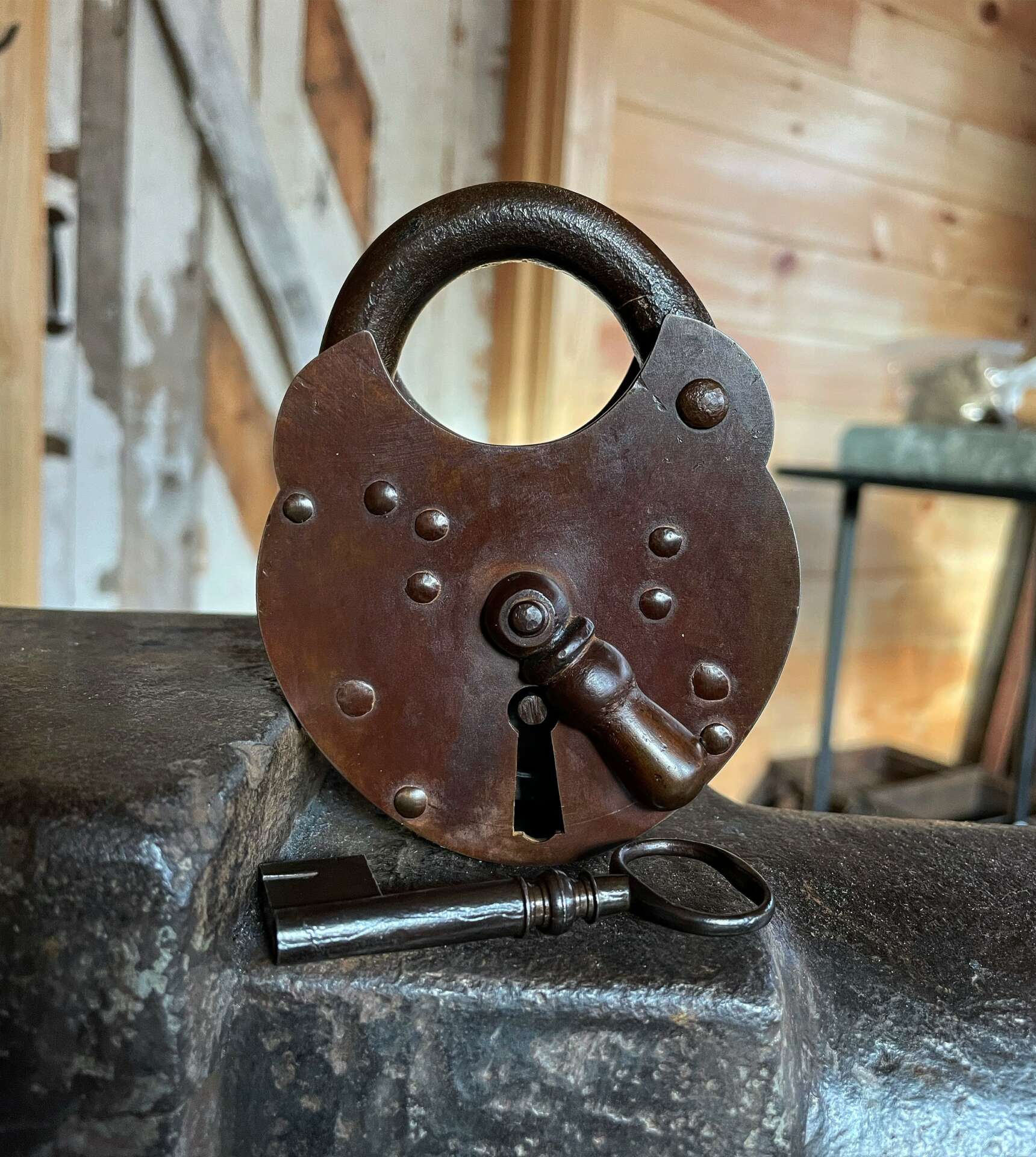
Contact Info:
- Website: https://www.greasyluckforge.com/
- Instagram: https://www.instagram.com/greasyluckforge/
- Youtube: https://www.youtube.com/@GreasyLuckForge/videos
Image Credits
Chris Boucher


